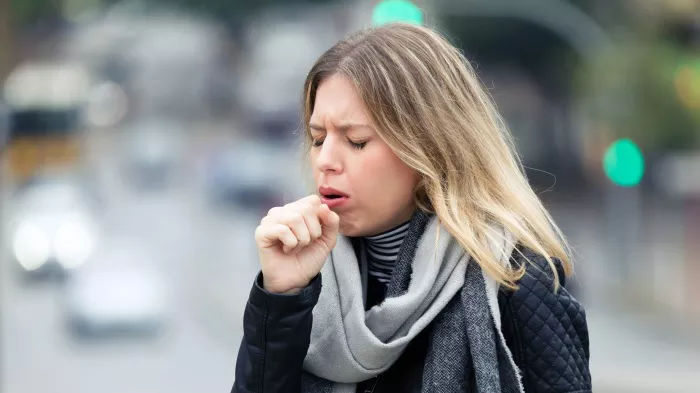Food allergies are a common and potentially serious condition that can develop at any age. A food allergy occurs when the immune system mistakenly identifies a certain food as harmful and produces an allergic reaction. In this article, we will discuss three signs and symptoms of a food allergy.
Understanding Food Allergies
Food allergies occur when the immune system identifies a certain food as harmful and produces an allergic reaction. The immune system produces antibodies to fight off the perceived threat, which can cause a range of symptoms.
Food allergies can be mild or severe, and they can develop at any age. Some common food allergens include peanuts, tree nuts, shellfish, fish, milk, eggs, soy, and wheat.
Three Signs and Symptoms of a Food Allergy
Skin Reactions
One of the most common signs of a food allergy is a skin reaction. Skin reactions can range from mild to severe and can include:
Hives: Raised, red, itchy bumps on the skin
Eczema: Dry, itchy, red, and inflamed skin
Swelling: Swelling of the face, lips, tongue, or throat
Itching: Itching or tingling in the mouth or throat
Skin reactions can occur within minutes or up to two hours after eating the allergenic food. In some cases, the skin reaction can be severe and require immediate medical attention.
Gastrointestinal Symptoms
Another common sign of a food allergy is gastrointestinal symptoms. These symptoms can include:
Nausea: Feeling sick to your stomach
Vomiting: Throwing up
Diarrhea: Loose, watery stools
Abdominal pain: Cramping or discomfort in the stomach
Gastrointestinal symptoms can occur within minutes or up to several hours after eating the allergenic food. In some cases, the symptoms can be severe and require medical attention.
Respiratory Symptoms
Respiratory symptoms are a less common sign of a food allergy, but they can be serious. These symptoms can include:
Wheezing: A high-pitched whistling sound when breathing
Shortness of breath: Difficulty breathing or feeling like you can’t catch your breath
Coughing: A persistent cough
Chest tightness: A feeling of pressure or tightness in the chest
Respiratory symptoms can occur within minutes or up to several hours after eating the allergenic food. In some cases, respiratory symptoms can be severe and require immediate medical attention.
What to Do If You Experience Signs and Symptoms of a Food Allergy
If you experience signs and symptoms of a food allergy, it is important to seek medical attention immediately. Anaphylaxis is a severe and potentially life-threatening allergic reaction that can occur within minutes of exposure to an allergen. Symptoms of anaphylaxis can include:
Difficulty breathing
Swelling of the face, lips, tongue, or throat
Rapid or weak pulse
Dizziness or fainting
Loss of consciousness
If you experience any of these symptoms, call 911 or go to the nearest emergency room immediately.
If you have a known food allergy, it is important to avoid the allergenic food and carry an epinephrine auto-injector (such as an EpiPen) with you at all times. Your doctor can provide you with a personalized allergy action plan and teach you how to use an epinephrine auto-injector.
Preventing Food Allergies
While it is not always possible to prevent food allergies, there are steps you can take to reduce your risk of developing an allergy. These include:
Breastfeeding: Breastfeeding for at least six months can help reduce the risk of developing food allergies.
Introducing solids: Introducing solid foods to infants between four and six months of age can help reduce the risk of developing food allergies.
Delaying introduction of allergenic foods: Delaying the introduction of allergenic foods, such as peanuts, until after six months of age may help reduce the risk of developing a food allergy.
Reading food labels: Reading food labels carefully and avoiding foods that contain allergens can help prevent allergic reactions.
Avoiding cross-contamination: Keeping allergenic foods separate from other foods and washing hands and kitchen surfaces thoroughly can help prevent cross-contamination.
Conclusion
Food allergies are a common and potentially serious condition that can cause a range of signs and symptoms. Skin reactions, gastrointestinal symptoms, and respiratory symptoms are three common signs of a food allergy. If you experience signs and symptoms of a food allergy, seek medical attention immediately. If you have a known food allergy, it is important to avoid the allergenic food and carry an epinephrine auto-injector with you at all times. By being aware of the signs and symptoms of a food allergy and taking appropriate precautions, you can manage your allergy and protect your health.
[inline_related_posts title=”You Might Be Interested In” title_align=”left” style=”list” number=”6″ align=”none” ids=”4692,4690,4659″ by=”categories” orderby=”rand” order=”DESC” hide_thumb=”no” thumb_right=”no” views=”no” date=”yes” grid_columns=”2″ post_type=”” tax=””]































